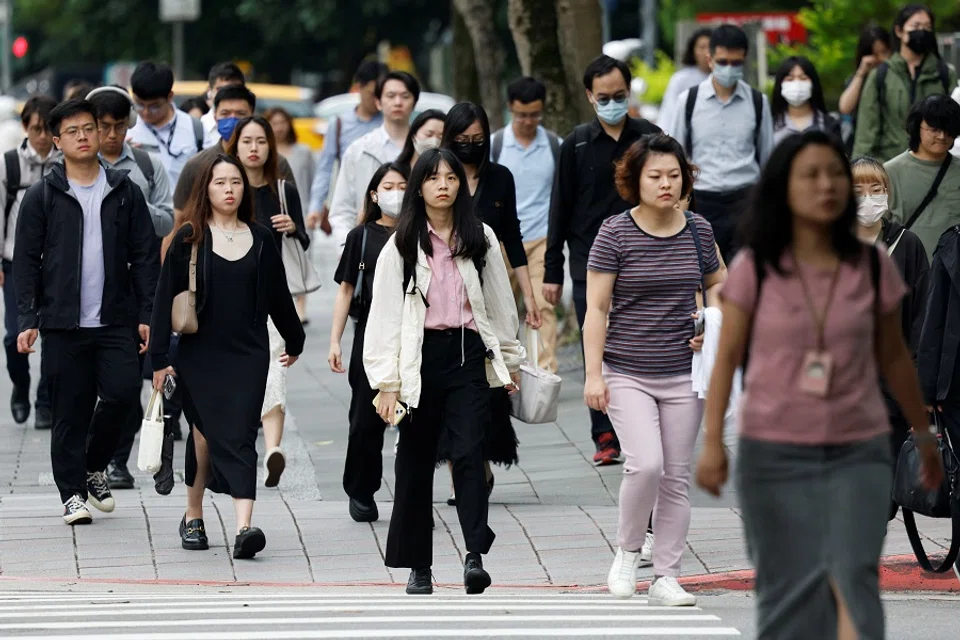A Japanese in Taiwan: Understanding Taiwanese indifference to the Israel-Palestine conflict
Honda Mami, a Japanese studying in Taiwan, explores why Taiwan protested in the war in Ukraine, but has barely registered the situation in the Middle East involving Israel and Gaza.

Recently, university students across the US, France, the Netherlands and Japan have staged large-scale anti-Israel campaigns, with police forcefully dispersing protesters, and scuffles erupting between the two parties.
But amid the wave of protests, university students in Taiwan continue to go about their daily lives, seemingly unconcerned about Israeli atrocities in Palestine. Seeing my classmates’ indifference to the Palestinian conflict and humanitarian crisis, I began to wonder: why were the Taiwanese so concerned about Ukraine when the Russia-Ukraine war broke out, but are now not showing any reaction or concern as to the Israel-Palestine conflict?
Two factors affecting Taiwan’s reaction
We have to analyse this question from two aspects. The first concerns how the government interpreted and discussed the conflicts in public.
When the Russia-Ukraine war broke out, the Republic of China (ROC) government coined the slogan “Ukraine today, Taiwan tomorrow”, urging the public to show concern and support for Ukraine. Recognising parallels between a powerful Russia’s attack against vulnerable Ukraine and mainland China’s attempt at reunification with Taiwan, the government utilised the slogan to highlight the war. Concurrently, Taiwanese media reports exhibited a clear bias towards supporting Ukraine.
... the ROC government believes that the US is the only reliable country in the face of pressure from the mainland. Government officials believe that US aid and support are indispensable if a conflict were to break out in the Taiwan Strait.

However, when the Israel-Hamas war broke out last year, the Taiwanese government neither reacted to the conflict nor urged the people to pay attention to it. Neither did it condemn Israel for attacking the innocent people of Palestine.
Clearly, the government thinks that the Israel-Palestine conflict is but a war in the Middle East and has no direct relation to Taiwan. The Taiwanese are thus uninterested in the topic, much less think about staging anti-Israel campaigns like those in Europe and the US.
The second aspect concerns which side the US supports. In the Russia-Ukraine war, the US fully supported Ukraine, providing the latter with a huge amount of ammunition and weapons. But in the Israel-Palestine conflict, the US has always supported Israel and provided aid to the latter (although the situation has somewhat changed, the US has not abandoned Israel).
Serious humanitarian crises such as Gaza’s famine and healthcare collapse have failed to awaken the Taiwanese public’s conscience, which has been blinded by the government and the US.
US influence
The ROC government supports the same countries as the US, and readers may ask, “Why?” This is because of US-Taiwan relations — the ROC government believes that the US is the only reliable country in the face of pressure from the mainland. Government officials believe that US aid and support are indispensable if a conflict were to break out in the Taiwan Strait.
Thus, a phenomenon of “emulating and pleasing the US” has emerged diplomatically, backed with the belief that as long as Taiwan follows the US in supporting Ukraine and Israel, it would be seen as a pro-US island with the same values as the US, thereby deepening its friendly relations with the US.

These two factors have significantly affected the people of Taiwan. When it comes to the Israel-Palestine conflict, most Taiwanese have been influenced by government propaganda and media reports, leading to insufficient or one-sided understanding of the event itself. As such, they are unable to independently and objectively evaluate the event, turning into pliant people who support whoever the government or the US supports.
Blinded by government and US
I believe most readers are aware of the tragedies happening in Gaza and should also feel angry at Israel to a certain extent. But this is not seen in Taiwan at all. Serious humanitarian crises such as Gaza’s famine and healthcare collapse have failed to awaken the Taiwanese public’s conscience, which has been blinded by the government and the US.
As university students across the globe are speaking up for Palestine and demanding Israel to stop its attack, even to the point of getting arrested by the police, university students in Taiwan have long forgotten this tragic conflict, continuing on with their lives in the beautiful “kingdom of the sky dragon” (天龙国, tianlong guo, internet slang referring to privileged Taiwanese living in Taiwan).
Unfortunately, as long as the government continues to perpetuate distorted international perceptions and shows favouritism towards the US, it will be challenging for the Taiwanese public’s conscience to be awakened and for them to advocate for justice.





